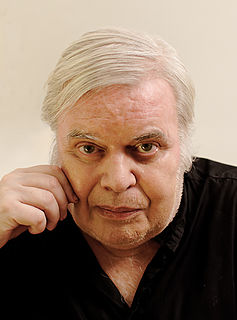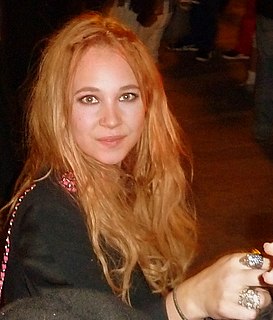A Quote by T. S. Eliot
Someone said, 'The dead writers are remote from us because we know so much more than they did.' Precisely, and they are that which we know.
Related Quotes
It is immature and lazy to imagine we know everything there is to know about someone before we know that someone. We don't know their stories, their histories, their real live human feelings. We don't know their favorite movies and best memories and what makes them afraid. It is unfair to take one fact, one thing they've said or we heard they said, or one thing they wrote, or someone else's experience, or a group they identify with and make a character sketch. If people did that to us, the picture would be so woefully incomplete, we wouldn't even recognize our own description.
I was in a conversation and someone said: "You know, we were talking about the whole issue of transgender and how it has become so accepted now, and somebody said, 'You know the Oprah show, I think has had a big impact.'" I said, I don't think so. We did several transgender [shows], but we didn't do as much for transgender as I did for, say, abused kids or battered women. And they said, "But no, you started the conversation. You started the conversation and the conversation has led us to here."
I think that comes with a collaboration with the writers. I think that we get cast in edgier roles because we are a little more offbeat, so people - as we get to know the writers, and as the writers get to know us, they start to write around us more, and that's why I think the pilot is not always the best way to get to experience a new television show, because we're fitting ourselves into these characters. Whereas as the show evolves, they're writing the characters for us and for our strengths and weaknesses.
Miss Abigail, I want to be an author because writers know when a person is lonely. I mean, when Molly read me some books, those writers reached out and said, Look Gideon, we know about your loneliness and we know you're feeling downtrodden. And they said...I'll stand up for you. You're not lone anymore.
"You know, I've wondered if it's more painful to lose someone you love to death or to lose someone you love because she no longer loves you back." "I don't know," I said. "On the surface, it seems an easy question. It should be so much easier to lose someone who doesn't love you, because why would you want to be with someone who doesn't want you? But rejection's not an east road. A part of you always wonders what makes you so unlovable."
Have you come over time to think that you know more now than you did when you were young, know less now than when young, know now there is so much more to know than you knew there was to know when young that it is moot whether you think you knew more then than now or less, or do you now know that you never knew anything at all and never will and only the bluster of youth persuaded you that you did or would?
Sometimes you hear a person speak the truth and you know that they are speaking the truth. But you also know that they have not heard themselves, do not know what they have said: do not know that they have revealed much more than they have said. This may be why the truth remains, on the whole, so rare.
We said we would meet again but we made no arrangements. Not out of any bad feeling between us, but because I felt it had all been said, or not said but understood, and she probably did too. To know she was there was enough, and for her to know I was around was probably too. Sometimes that's all people ever really need. Just to know.
Fiction is more dangerous than nonfiction because it can seduce better. I think we all know this, know that deeper truths can be approached in fiction than in fact. There are risks for the reader, because after reading certain books you find you have changed irreversibly. There are risks for writers: in China, now, and Ethiopia and other countries right now, writers face real persecution.
You know, it's a funny thing about writers. Most people don't stop to think of books being written by people much like themselves. They think that writers are all dead long ago--they don't expect to meet them in the street or out shopping. They know their stories but not their names, and certainly not their faces. And most writers like it that way.







































